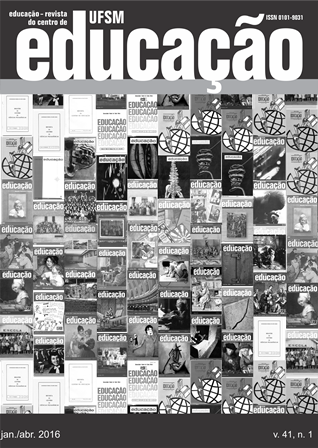Contraditions in educational politics: is it a garantee for learning or the remaining of exclusion?
DOI:
https://doi.org/10.5902/1984644415470Keywords:
Educational policies, Elementary School, Correction flow.Abstract
We propose to discuss the issue from the critical perspective on psychology and education, considering that historical roots of educational problems are forged in the midst of an unequal society. In this paper we discuss the contradictions in educational policies in Rondonia, which aim to improve the quality of learning/teaching through programs of students flow correction by forwarding them to EJA - Adults and Young Adult Education. The discussions were built from different studies that allowto analyzesituations of inclusion/exclusion in the light of the public policies implemented in this context. One can perceive the lack of investment to improve teaching/learning in order to ensure appropriation of knowledge to all, instead of adopting ad hoc measures that do not face the exclusion processes within schools.Downloads
Published
How to Cite
Issue
Section
License
Declaration of originality
We declare that all articles present in the journal Educação (UFSM) are originals and were not submitted for publishing on any other publication, as a whole or a fraction. We also declare that, after being published by Educação (UFSM), a paper will not be submitted to another journal within two years. After this time, our journal transfers the publishing rights to the authors, with a permit granted by the Editorial Council.
We also acknowledge that the originals’ submission to Educação (UFSM) implies on a transference of copyright for physical and digital publishing to the journal. In case of noncompliance, the violator will receive sanctions and penalties predicted by the Brazilian Copyright Protection Law (n. 9610, dated 19/02/98).
Attribution 4.0 International (CC BY 4.0)
This license lets others remix, transform, and build upon the material for any purpose, even commercially, and copy and redistribute the material in any medium or format.

This work is licensed under a Creative Commons Attribution 4.0 International (CC BY 4.0)






